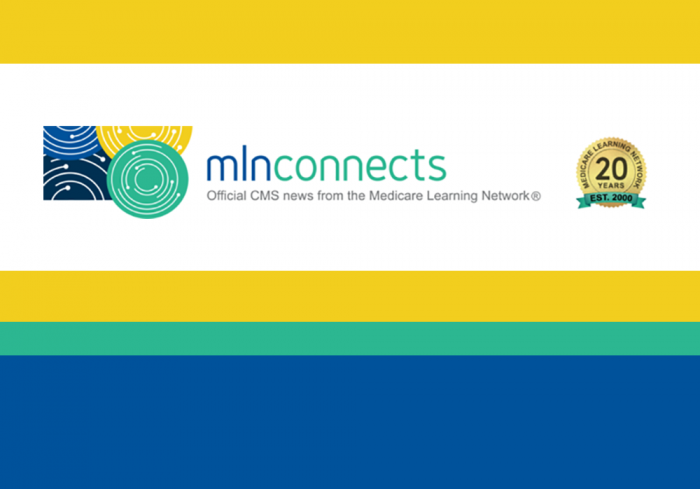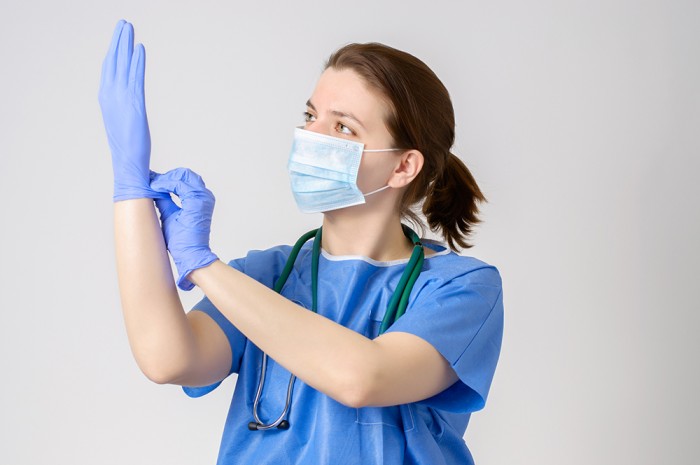Deadline Approaching: Notification Requirements of Confirmed and Suspected COVID-19 Cases Among Nursing Home Residents and Staff
On April 19, CMS announced the agency will be requiring facilities to report COVID-19 information to the CDC and to families. Within three weeks of that announcement, on April 30, CMS issued an Interim Final Rule with Comment Period with new regulatory requirements. With the new regulatory requirements, nursing homes are required to report the first week of data to the CDC beginning May 8 but no later than May 17. For the first time, all 15,000 nursing homes will be reporting this data directly to the CDC through its reporting tool.
In order to report, facilities must enroll in the CDC’s National Healthcare Safety Network (NHSN). Information on how to enroll is available here. As nursing homes report this data to the CDC, CMS will be taking swift action and publicly posting this information so all Americans have access to accurate and timely information on COVID-19 in nursing homes. More information on the CDC’s NHSN COVID-19 module can be found here.
CMS Releases Nursing Home Toolkit with Best Practices and Additional Resources
CMS released a new toolkit developed to aid nursing homes, Governors, states, departments of health, and other agencies who provide oversight and assistance to these facilities. These additional resources will help in the fight against the COVID-19 pandemic within nursing homes. The toolkit builds on previous actions taken by CMS, which provide a wide range of tools and guidance to states, healthcare providers and others during the public health emergency. The toolkit is comprised of best practices from a variety of front line health care providers, Governors’ COVID-19 task forces, associations and other organizations, and experts, and is intended to serve as a catalogue of resources dedicated to addressing the specific challenges facing nursing homes as they combat COVID-19.
Telephone Evaluation and Management Visits
The March 30 Interim Final Rule with Comment Period added coverage during the Public Health Emergency for audio-only telephone evaluation and management visits (CPT codes 99441, 99442, and 99443) retroactive to March 1. On April 30, a new Physician Fee Schedule was implemented increasing the payment rate for these codes. Medicare Administrative Contractors (MACs) will reprocess claims for those services that they previously denied and/or paid at the lower rate.
There are also a number of add on services (CPT codes 90785, 90833, 90836, 90838, 96160, 96161, 99354, 99355, and G0506) which Medicare may have denied during this Public Health Emergency. MACs will reprocess those claims for dates of service on or after March 1.
You do not need to do anything.
Hospitals: Physician Time Studies During the COVID-19 PHE
Hospitals that incur physician compensation costs must allocate those costs based on the percentage of total time spent furnishing:
- Part A services
- Part B services
- Non-Medicare allowable activities
Hospitals must submit physician allocation agreements annually as part of the cost report filing process. During the Public Health Emergency (PHE), any one of these time study options is acceptable:
- One week time study every 6 months (two weeks per year)
- Time studies completed in the cost report period prior to January 27, the PHE effective date (e.g. hospital with a 7/1/2019 — 6/30/2020 cost reporting period, could use the time studies collected 7/1/2019 through 1/26/2020; no time studies needed for 1/27/2020 — 6/30/2020)
- Time studies from the same period in CY 2019 (e.g., if unable to complete time studies during February through July 2020, use time studies completed February through July 2019)
For more information, see the Provider Reimbursement Manual:
- Chapter 21, section 2182.3.E.3 – allocation agreements
- Chapter 23, section 2313.2.E and Chapter 21, section 212182.3.E – instructions for time studies
Trump Administration Announces Call for Nominations for Nursing Home Commission
CMS announced a call for nominations for the new contractor-led Coronavirus Commission on Safety and Quality in Nursing Homes. The commission’s work will build on the Trump Administration’s long history of decisive actions to protect nursing home residents. The commission will conduct a comprehensive assessment of the overall response to the COVID-19 pandemic in nursing homes and will inform immediate and future actions to safeguard the health and quality of life for an especially vulnerable population of Americans.
Press Release
Nursing Home Commission Nominations
COVID-19: Home Health and Hospice Call — May 19
Tuesdays from 3 to 3:30 pm ET
These calls provide targeted updates on the agency’s latest COVID-19 guidance. Leaders in the field also share best practices. There is an opportunity to ask questions if time allows.
To Participate on May 19:
- Conference lines are limited; we encourage you to join via audio webcast
- Or, call 833-614-0820; Access Passcode: 6477704
For More Information:
- Coronavirus.gov
- CMS Current Emergencies website
- Podcast and Transcripts webpage: Audio recordings and transcripts
Target Audience: Home health and hospice providers
COVID-19: Nursing Home Call — May 20
Wednesdays from 4:30 to 5 pm ET
These calls provide targeted updates on the agency’s latest COVID-19 guidance. Leaders in the field also share best practices. There is an opportunity to ask questions if time allows.
To Participate on May 20:
- Conference lines are limited; we encourage you to join via audio webcast
- Or, call 833-614-0820; Access Passcode: 4879622
For More Information:
- Coronavirus.gov
- CMS Current Emergencies website
- Podcast and Transcripts webpage: Audio recordings and transcripts
Target Audience: Nursing home providers
COVID-19: Dialysis Organization Call — May 20
Wednesdays from 5:30 to 6 pm ET
These calls provide targeted updates on the agency’s latest COVID-19 guidance. Leaders in the field also share best practices. There is an opportunity to ask questions if time allows.
To Participate on May 20:
- Conference lines are limited; we encourage you to join via audio webcast
- Or, call 833-614-0820; Access Passcode: 3287645
For More Information:
- Coronavirus.gov
- CMS Current Emergencies website
- Podcast and Transcripts webpage: Audio recordings and transcripts
Target Audience: Dialysis organizations
COVID-19: Nurses Call — May 21
Thursdays from 3 to 3:30 pm ET
These calls provide targeted updates on the agency’s latest COVID-19 guidance. Leaders in the field also share best practices. There is an opportunity to ask questions if time allows.
To Participate on May 21:
- Conference lines are limited; we encourage you to join via audio webcast
- Or, call 833-614-0820; Access Passcode: 2874976
For More Information:
- Coronavirus.gov
- CMS Current Emergencies website
- Podcast and Transcripts webpage: Audio recordings and transcripts
Target Audience: Nurses
COVID-19: Office Hours Call — May 21
Tuesdays and Thursdays from 5 to 6 pm ET
Hospitals, health systems, and providers: Ask CMS questions about our temporary actions that empower you to:
- Increase hospital capacity – CMS Hospitals Without Walls
- Rapidly expand the health care workforce
- Put patients over paperwork
- Promote telehealth
To Participate on May 21:
- Conference lines are limited; we encourage you to join via audio webcast
- Or, call 833-614-0820; Access Passcode: 9984433
For More Information:
- Coronavirus.gov
- CMS Current Emergencies website
- Podcast and Transcripts webpage: Audio recordings and transcripts
Target Audience: Physicians and other clinicians
COVID-19: Lessons from the Front Lines Call — May 22
Fridays from 12:30 to 2 pm ET
These weekly calls are a joint effort between CMS Administrator Seema Verma, Food and Drug Administration Commissioner Stephen Hahn, MD, and the White House Coronavirus Task Force. Physicians and other clinicians: Share your experience, ideas, strategies, and insights related to your COVID-19 response. There is an opportunity to ask questions.
To Participate on May 22:
- Conference lines are limited; we encourage you to join via audio webcast
- Or, call 877-251-0301; Access Code: 6086125
For More Information:
- Coronavirus.gov
- CMS Current Emergencies website
- Podcast and Transcripts webpage: Audio recordings and transcripts
Target Audience: Physicians and other clinicians
















